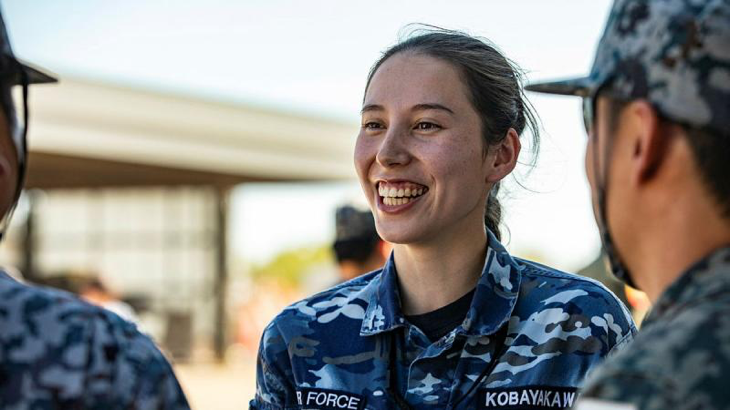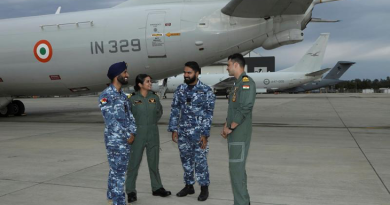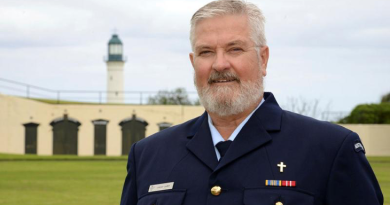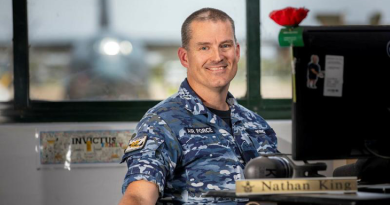Breaking down language barriers

An historic visit by Japan Air Self-Defense Force (JASDF) F-35A Lightning IIs to Australia allowed a small group of linguists to bring both countries closer together.
CAPTION: Pilot Officer Ema Kobayakawa talks with Japan Air Self-Defense Force personnel at RAAF Base Tindal, NT. Story by Flight Lieutenant Rachael Blake. Photo by Leading Aircraftwoman Taylor Anderson.
Pilot Officer Ema Kobayakawa is posted to 452 Squadron’s Air Traffic Control Flight at RAAF Base Tindal, where a 60-strong JASDF contingent deployed in August.
The visit marked the first time a Reciprocal Access Agreement between both countries was exercised and the first international deployment for JASDF F-35As, and was a success thanks, in part, to a linguist team from both countries.
“Linguist support could entail anything from organising meal or transport arrangements, addressing accommodation issues, and providing linguistic support during briefs, base tours and even medical appointments,” Pilot Officer Kobayakawa said.
“Being a linguist requires you to have a vocabulary bank across various fields; for example, you may need to interpret for an aircraft maintenance discussion or a meeting on satellite communication systems.
“It can be challenging to learn the military terminologies for various things, but being a linguist is an incredible opportunity to meet new people from both RAAF and JASDF.”
Defence relies on linguists from an array of backgrounds, from members who grew up speaking another language natively, to those who undertake language studies later in life.
Before helping the JASDF contingent navigate their stay at RAAF Base Tindal, Pilot Officer Kobayakawa grew up in Nagoya, moving to Australia with her family when she was 15.
“I had difficulties adjusting to both the social and academic challenges of high-school life here in Australia,” Pilot Officer Kobayakawa said.
“Luckily, I had some incredible family, friends and teachers who supported me through the transition.
“One of the most difficult things to learn culturally was Australian humour, which is very distinct and can be confusing if you do not have the background information to make sense of the jokes.”
Taking a keen interest in aviation early in life, Pilot Officer Kobayakawa attended Defence Work Experience programs in high school, motivating her to pursue a career in the Air Force.
Pilot Officer Kobayakawa said she enjoyed the variety and challenge of balancing both air traffic control duties and linguistic taskings.
“Now that I have participated in a couple of Defence international activities, I am more appreciative of the myriad of factors that can affect the linguistic team member’s ability to efficiently perform language-support tasks,” Pilot Officer Kobayakawa said.
Linguist support is more than just being a translator of words.
Great linguist support is providing the ability to interpret the communication between international representatives, and about being culturally sensitive.
“Understanding the significance of body language, eye contact, voice tone, timing, traditions and use of humour is also a crucial element of performing tasks effectively,” Pilot Officer Kobayakawa said.
.
.

.
.





